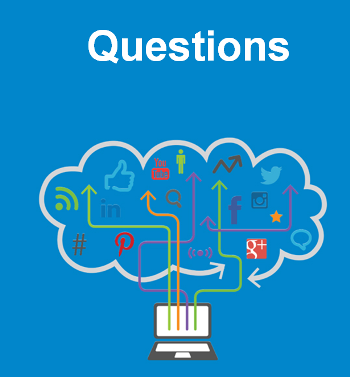How to Pitch Journalists on Social Media: Your Questions Answered
Our webinar, How To Pitch Journalists On Social Media, with digital specialists, Jim Hawker and James Swan of Threepipe Communications, was a resounding success with questions, comments and conversations spilling over from the webinar on to Twitter and other social platforms. While we answered most questions real-time, Jim and James took time out to follow-up on some of the other questions attendees asked:
Hi there, I work for a large organisation – We have a Twitter account for our press team, which is aimed at increasing our profile with journalists. You recommended not tweeting from your organisation, but if the Twitter account is specifically press related, would this be ok?
If the account is specifically for press related enquiries this would be OK. However, it would still be beneficial to tweet from an individual Twitter account to create a more personal relationship and include the Twitter handle of the press enquiries account within your tweet. That way a journalist has a direct point of contact, but is also able to follow the organisation more generally and has an alternative source if they are unable to get in touch with you.
Do think pitching via social is equally relevant in B2B?
It is becoming more relevant for B2B and we can particularly see it with a number of our B2B clients in the tech industry. They see the opportunity that social can provide and B2B journalists are also following suit. Across the board we are seeing social being used as a pitching tool for both PRs and journalists and it will be interesting to see how this evolves.
So do you think journalists prefer being approached via social rather than traditional way of emails?
The Social Journalism Study findings indicate they want to be engaged by social and they are using social to help aid their content within stories but email is still hugely popular and enables you to have a much more in depth and relevant conversation. Social is becoming an additional media relations tool and it is important for PR professionals to embrace this, but equally important not to forget about more traditional channels like phone and email.
I’ve seen people asking to be followed in order to DM – presumably not the best way, as no conversation/relationship?
We would strongly advise against doing this. Open up a dialogue with the journalist first, comment on their work and offer thoughts on stories beyond those of your clients. That way a journalist may follow you back anyway. Asking for a follow back will instantly lose your credibility.
Would you recommend direct messaging on Twitter for pitching?
If a journalist is following you back there is no reason why you shouldn’t pitch via direct messaging on Twitter to take it away from the public domain. However, asking a journalist to follow you back in order to send a direct message is definitely not advised.
Would it be a good follow-up to follow a journalist from a business account, as a follow-up from your personal account, or is that overkill?
A personal account should be more than enough. Adding the business account to the mix may just confuse things. It might not be clear who is actually tweeting from the business account, so just keep it to your own account and then point the journalist in the direction of the business Twitter handle in case they are interested in following and finding out more information
Are creating Twitter lists useful for monitoring journo requests?
Creating Twitter lists are extremely useful. There are software tools that can help you monitor which journalists are looking for PR support with their stories, particularly with the #PRrequest and #JournoRequest hashtags.
If a journalist is negative towards a brand you are representing while in dialogue with you on Twitter, in your view what is the best way to engage with them?
The best thing to try and do is to get the conversation offline as quickly as possible and resolve it offline so it’s not visible to the outside world. We had a recent example where an Academic was questioning the accuracy of some of our research. Having taken the dialogue offline, we managed to organise a one-to-one meeting with our client, which he very much appreciated. That initial dispute has now resulted in an ongoing media contact so not all disputes should be seen as a bad thing!
Are some PRs confusing social media as a platform for promoting, when really their content should be created for sharing?
Absolutely. This is a great point. PRs shouldn’t just be using social media channels to push out content. They should be using it as a networking platform to engage with journalists, as well as sharing work with the rest of their following
In case you missed it, we hugely recommend watching a recording of the 45 minute session.
Listen and watch on demand at any time and learn to:
- find the right journalists and identify the right platform on which to approach them
- tailor your messages to fit the platform and engage recipients in productive conversation
- use images and videos to tell a better story


Leave a Comment